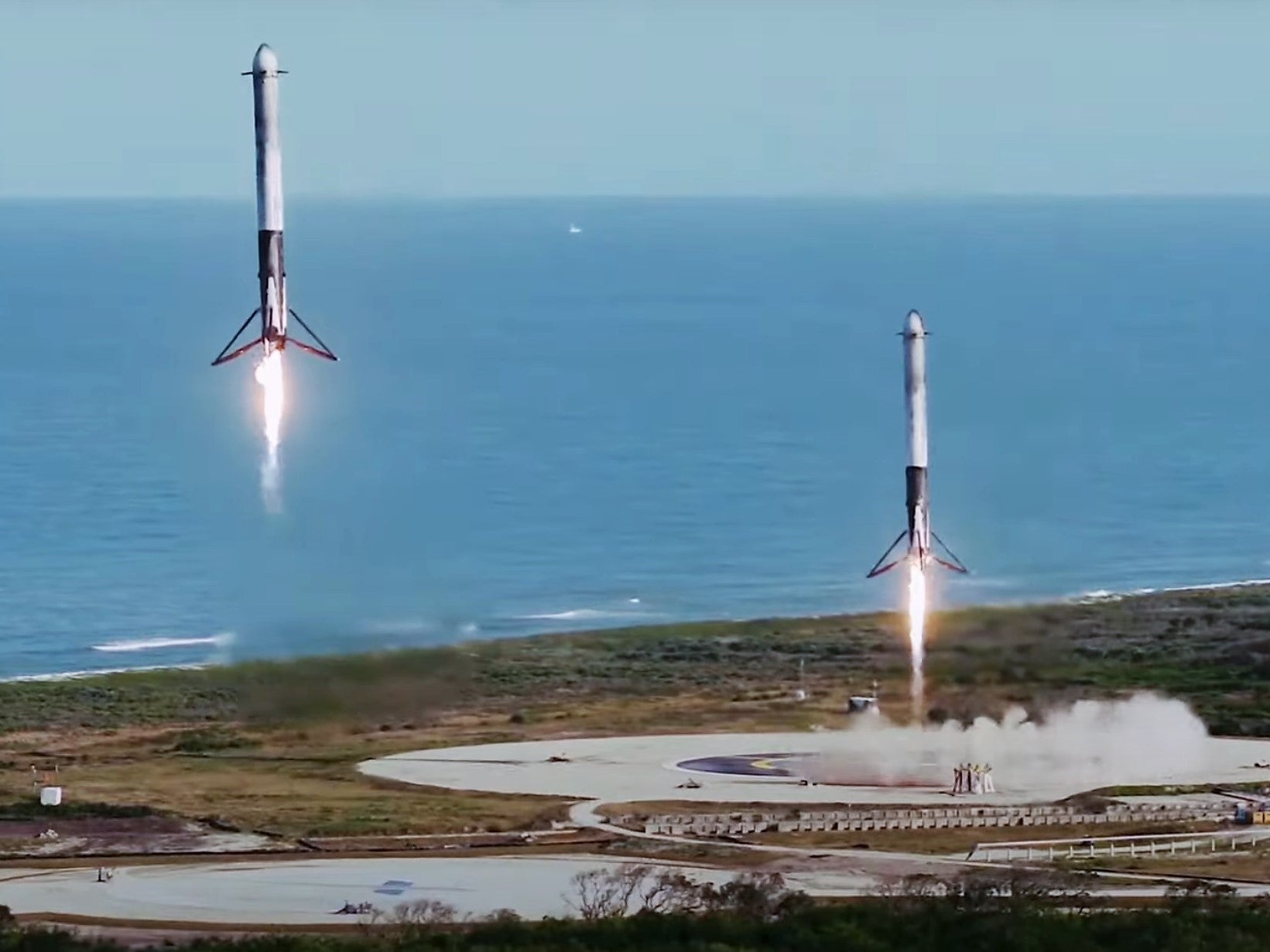SpaceX flies used Falcon 9 rocket for a record-breaking 9th time
Starlink launch forms part of Elon Musk’s plan to colonise Mars

SpaceX has successfully launched and landed the same Falcon 9 rocket for a record-extending ninth time.
The launch from Kennedy Space Center in Florida on 14 March was the 22nd Starlink mission and SpaceX’s eighth launch of 2021.
There are now more than 1,100 Starlink satellites in orbit, offering high-speed internet to ground-based users in the US, Canada, UK, Germany and New Zealand.
SpaceX hopes to grow the constellation over the next several years in order to expand its broadband coverage to 99 per cent of the populated world.
“Today’s Starlink launch is particularly special as this is the first time that we are flying a Falcon 9 rocket for the ninth flight,” said Kate Tice, senior certification engineer at SpaceX.
Read more:
“We reflew a Falcon 9 booster for the first time just four years ago, so to be at the ninth flight of a booster is pretty incredible and super exciting for our teams.”
Falcon 9 is the first orbital-class rocket capable of reflight, and has since inspired other private space companies like Blue Origin to create their own reusable rockets.
SpaceX CEO Elon Musk has consistently outlined the importance of rapid rocket reusability in making space flight radically cheaper and more accessible.
Following Sunday’s Starlink launch, Mr Musk said the company’s space internet project will be used to fund its ambitions to colonise Mars.
The technology billionaire originally founded SpaceX with the ultimate aim of transforming humanity into a multi-planetary species in order to ensure its future survival.
The firm’s reusable rocket technology has been adapted for its Starship rockets, which are currently undergoing intensive tests in the hope of achieving its ambitious target of sending humans to Mars within the next few years.
“Helping to pay for this is why I’m accumulating assets on Earth,” Mr Musk said last year, who is now the second richest person in the world.
“The whole purpose of SpaceX is really to help make life multi-planetary... but the revenue potential of launching satellites to the space station, that taps out about $3 billion dollars a year. But I think providing broadband is more like an order of magnitude more than that, probably $30bn a year as a rough approximation.”
Subscribe to Independent Premium to bookmark this article
Want to bookmark your favourite articles and stories to read or reference later? Start your Independent Premium subscription today.

Join our commenting forum
Join thought-provoking conversations, follow other Independent readers and see their replies